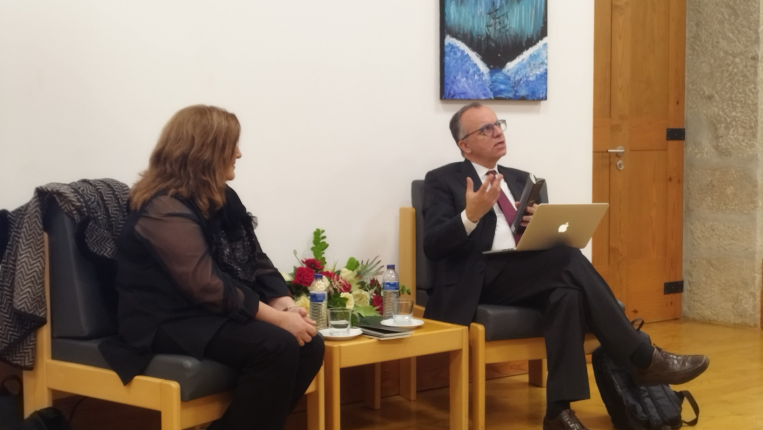Academics and writers praise the ‘great prose writer’ and ‘powerful storyteller’, but regret the reductive view of his work and the scant representation in teaching.
Passionate, torrential, satirical, polemical, Camilo Castelo Branco was, in life as in his books, (almost) everything and its opposite. The only thing is that he never ceased to be a genius, spreading his unlimited vision over more than a hundred and a half books. On the eve of the bicentenary of his birth, and on the day that an international congress is being held in his honour, there is a succession of initiatives (see next page) that praise, in the words of university professor Cândido Oliveira Martins, ‘a great prose writer of the Portuguese language, a powerful storyteller and a versatile cultivator of various genres’.
But, ceremonial laudatory remarks aside, are the Seide giant's books sufficiently read today, starting with the authors themselves? Writer and editor Francisco José Viegas confesses to having doubts: ‘Camilo is not important today - he was always important. He was in his time and he still is. If the generation of the 70s and 80s (and today's generation) had read Camilo, we wouldn't have such a depressing, sentimental, petty-bourgeois, moralistic Portuguese novel. And perhaps it would have been written much better,’ says Viegas.
Many decades before similar techniques took hold, with the pretence of (post-)modernity, Camilo was already directly questioning readers, making time jumps or placing the characters right away, dispensing with the usual introductions. Everything was told with a ‘high pace, unexpected twists and turns with the aim of grabbing the reader from the first page’, emphasises Isabel Pires de Lima, professor emeritus at the University of Porto and president of the Serralves Foundation.
For this reason, ‘almost everything was done by Camilo. He invented the novel as a great genre,‘ argues the author of “The Light of Peking”, who chooses “The Brazilian of Prazins” as “one of those books that has almost everything to survive in the hands of a writer convinced that he is ”modern’’.
MOST STUDIED IN BRAZIL
Controversial and uncompromising in his time - he was involved in countless physical and verbal clashes throughout his life - Camilo is today a victim, not of his controversial actions, but of various stereotypes that associate him with a provincial writer, confined to passionate narratives and a conservative worldview.
The lament comes from Cândido Oliveira Martins, a critic of the scarce Camillian research and essays currently being produced in Portugal. A very different scenario to Brazil, where ‘it is easier to find, in good universities, young undergraduates, especially postgraduates, who are very interested in reading Camilo and producing research on the writer, as well as teaching colleagues and researchers who are very productive in this field’.
It's not just in the university field that the attention given to Camilo Castelo Branco's work falls short. The associate professor at the Catholic University of Braga questions the choice of ‘Amor de perdição’ as the work for secondary school children to enter the Camillian universe, arguing that ‘the Camilo of the humorous and satirical narrative would gain more young readers than the writer of the passionate narrative, more demanding to be worked on in the classroom’, suggesting ‘one of the brief and remarkable of the short and remarkable ‘Novelas do Minho’ as an alternative.






